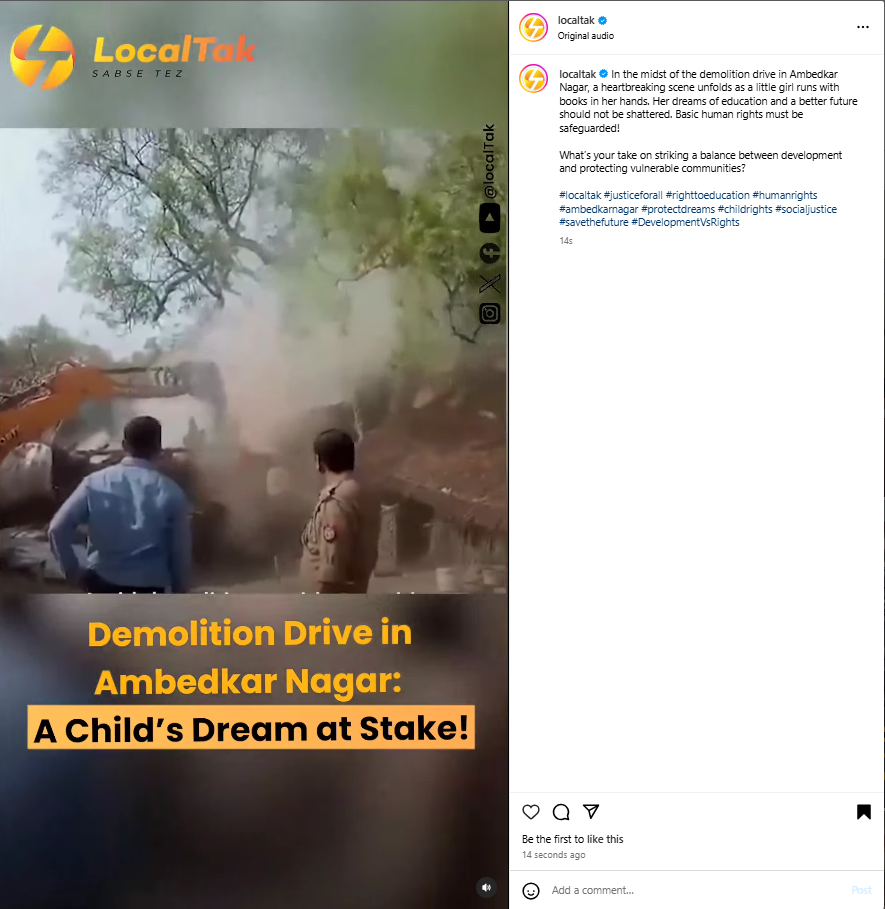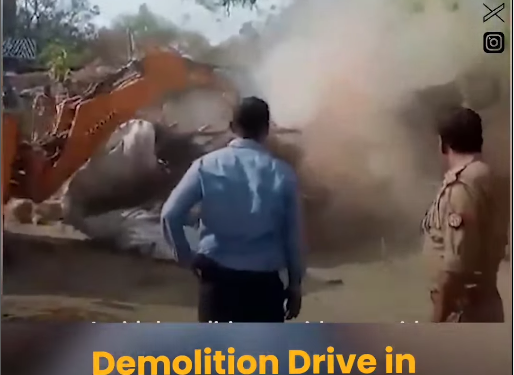In the midst of rapid urban development and infrastructure expansion, stories of human suffering often go unheard. The recent demolition drive in Ambedkar Nagar paints a grim picture of this reality, where a young girl was seen running with books in her hands, desperate to hold on to her dreams of education. Such moments force us to ask: How do we strike a balance between progress and the protection of vulnerable communities?
Urban renewal and infrastructure projects are often deemed necessary for economic growth, improved public services, and better living standards. Governments and authorities argue that such demolitions pave the way for modernization, yet they frequently come at a steep human cost. Families are displaced overnight, livelihoods are lost, and children’s education is disrupted, leaving communities in a cycle of poverty and instability.

While development is essential, it should never come at the cost of fundamental human rights. Housing, education, and dignity are not privileges but necessities that must be safeguarded. The sight of a child clinging to her books amidst destruction is a painful reminder that we must rethink our approach to development.
To ensure that growth does not come at the expense of marginalized communities, governments and policymakers must take a humane approach to urban development. Here are a few key steps that can help strike a balance:
- Rehabilitation and Resettlement – Before demolitions, authorities must provide alternative housing and adequate compensation to affected families. No one should be left homeless in the name of progress.
- Inclusive Development Plans – Local communities should be involved in decision-making processes to ensure their needs are met. Transparent policies and consultations can prevent forced evictions and ensure fair treatment.
- Protection of Education – Schools and educational institutions should be protected, and displaced children should receive immediate support to continue their studies. Scholarships and temporary schooling facilities can mitigate the impact of evictions on young learners.
- Legal Safeguards – Stronger legal frameworks are needed to protect the rights of vulnerable populations. Governments must ensure that development projects comply with human rights laws and do not disproportionately harm marginalized groups.
- Sustainable Urban Planning – Development should prioritize long-term sustainability and equity. Smart urban planning can accommodate growth without displacing communities, promoting inclusive progress.
True development is not just about high-rise buildings and wider roads; it is about uplifting communities and ensuring that no one is left behind. The little girl in Ambedkar Nagar represents countless others whose dreams are at risk due to hasty and unplanned demolitions. As a society, we must advocate for policies that prioritize both progress and people.
Governments, civic bodies, and citizens must work together to create a future where development and humanity coexist. Only then can we truly claim to be building a better tomorrow—one where no child has to run with books in her hands, fearing the collapse of her dreams.















 Categories
Categories









